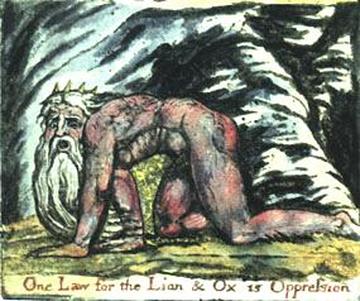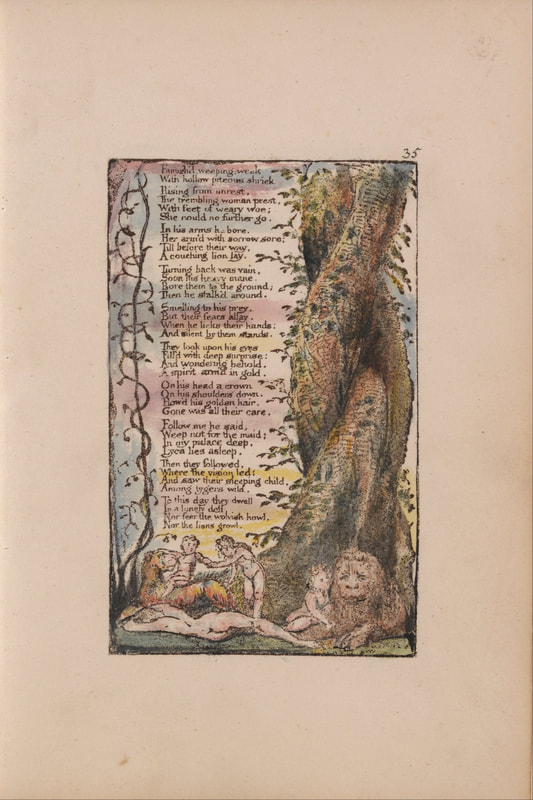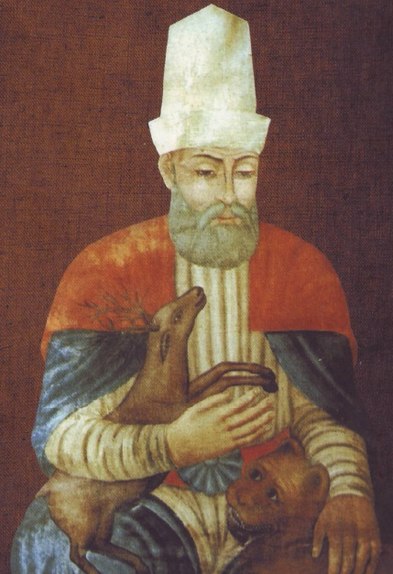There are cultures that seem to side with the Ox, even to the extent of worshiping cows and advocating vegetarianism. Other cultures past and present have sided with the Lion, valuing strength, ruthlessness and eating as much red meat as possible. Blake, I think, would like us to live on both sides at once: to appreciate the beauty and the energy of both the lion and the ox.
Dialogue in education is often associated with the value of equality. But usually this equality seems to be understood in a way that is the opposite of dialogical. I am often told, for example, that differences of power in a classroom mean that true dialogue is not possible. The assumption seems to be that dialogue requires equality. It would follow from this that dialogic education is a pious but rather hopeless idea since there are always power differences.
Even academics who write books about dialogue in education make the same error. Baruch Schwarz and Michael Baker mis-interpreted my appeal to the importance of dialogue as an end in itself as some sort of ethically based opposition to power differences ‘Wegerif sees in the mediation of the teacher an unbearable power relation imposed on the student’ they wrote (2016, p101-102)[i]. Of course teachers need to have authority in their role as mediators of knowledge. But their role as mediators is not to transfer closed facts but to induct students into open ongoing dialogues or shared inquiries. That is really what knowledge is, an ongoing dialogue. In that ongoing dialogue there is no necessary equality between the voices: everyone brings something different, some their great experience, others their curiosity and innocence – all are valued. Clearly a long-term dialogue of the culture needs newcomers as well as old-timers.
Dialogue presupposes difference not sameness. The bigger the difference that can be held together in the tension of a dialogue the brighter the sparks of insight and illumination that might result. I see no reason why a Queen cannot enter into dialogue with a chambermaid or a Professor of Education with a primary school student. All that is required for successful dialogue is that participants are able to put aside, just for a short time, their images of themselves and enter together into a process of shared inquiry. This suggests a radically different conception of equality. Not the external equality of equal parts, everyone treated as a separate identity and measured to be equal to the others in power or wealth or knowledge or age or whatever. The equality of widgets on a production line. Thinking of equality and justice in this external way is a big mistake - it almost always leads to tears before bedtime. At the individual level it leads to anxiety and resentment, at the collective level it has an established history of provoking mass murder. The dialogic alternative is the kind of internal equality that comes from opening up the boundary of the self to include the other within a shared space – a dialogic space. When we identify with the process of dialogue to the extent that we allow the voices of others to speak to us as if they were our own voices, then, for that moment at least, we are equal[ii].
This second more dialogic conception of equality is very relevant to understanding inclusive education. In a large study of diversity in science education we sent questionnaires to thousands of science teachers in the UK, Netherlands, Turkey, Lebanon, India and Malaysia asking about their approach to gender and ethnic diversity. I was surprised that most of these teachers responded that they did not have a problem with diversity since they treated all the students exactly the same. This shows the dominance of an external view of equality. Justice is done if everyone gets the same treatment. A dialogic approach to diversity makes the opposite claim. Responsibility means treating everyone differently because everyone is unique[iii].
Justice is not something that can be imposed from above like a universal law or a set of ‘equal rights’. Justice has to be worked out gradually, always imperfectly, always provisionally, within the contingent messiness of concrete relationships. The only universal behind internal equality is not an abstract law or principle but the complex concrete mystery of how it is that we are able to overflow our apparent boundaries and enter into dialogue. A dialogue means that it is no longer just me thinking or just you thinking but that it is now both of us - and ultimately all of us - thinking together. How is that possible? Well I think it must be because the external dividedness of reality – you over there in your corner and me over here in mine – is something of an illusion and through dialogue we can partially recover a truth of internal interconnectedness that was always already there.
Some references
William Blake ‘The Marriage of Heaven and Hell’ (http://www.levity.com/alchemy/blake_ma.html)
[i] Baruch Schwarz and Michael Baker (2016) Dialogue, Argumentation and Education: History, Theory and Practice’ , Cambridge University Press.
[ii] Sennett, R. (2003). Respect in a world of inequality. New York: Norton.
[iii] Wegerif, R., Postlethwaite, K., Skinner, N., Mansour, N., Morgan, A., & Hetherington, L. (2013). Dialogic science education for diversity. In Mansour, N and Wegerif, R (eds) Science education for diversity (pp. 3-22). Springer, Dordrecht.



 RSS Feed
RSS Feed